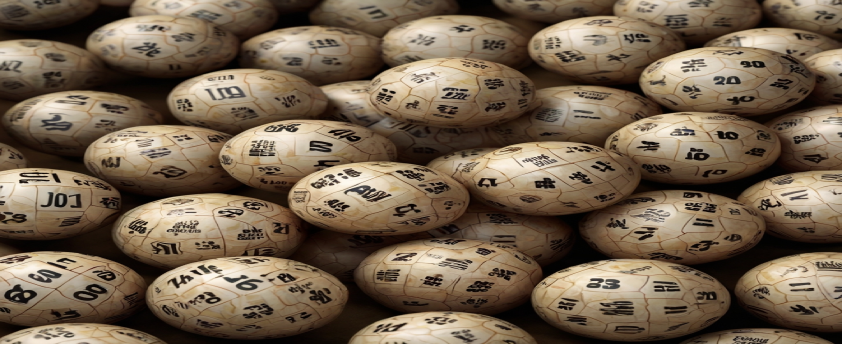Introduction
The concept of using software to predict lottery outcomes has fascinated many for years. This intrigue has led to the development of various programs, collectively known as “lottery defeated software.” These software solutions aim to analyze patterns, predict numbers, and ultimately increase the user’s chances of winning the lottery. While the effectiveness of these programs is often debated, the allure of potentially beating the odds continues to attract significant attention.
What is Lottery Defeated Software?
Lottery defeated software refers to computer programs designed to analyze past lottery results and generate numbers that are statistically more likely to be drawn in future lottery draws. These programs employ various methods, including statistical analysis, pattern recognition, and machine learning algorithms, to predict potential winning combinations.
Historical Context
The idea of using mathematical and statistical techniques to improve lottery odds is not new. However, the advent of computers and sophisticated algorithms has significantly enhanced these methods’ accuracy and efficiency. Early versions of lottery prediction software relied on basic statistical models, but modern versions incorporate advanced techniques such as artificial intelligence and big data analytics.
How Lottery Defeated Software Works
Data Collection and Analysis
The first step in the operation of any lottery defeated software is data collection. This involves gathering historical data on lottery draws, including the winning numbers, the frequency of each number being drawn, and any patterns that may emerge over time. The software then analyzes this data to identify trends and anomalies.
Algorithmic Prediction
Once the data is analyzed, the software employs various algorithms to predict future outcomes. Common algorithms used in lottery defeated software include:
- Random Number Generators (RNGs): Some software use enhanced RNGs that are designed to produce numbers that mimic the randomness of lottery draws while incorporating certain biases detected in historical data.
- Statistical Models: These models use probability theory and statistics to predict the likelihood of certain numbers being drawn based on past performance.
- Machine Learning Algorithms: More advanced lottery defeated software uses machine learning to continuously improve its predictions by learning from each new lottery draw.
User Interface and Experience
Most lottery defeated software programs come with a user-friendly interface that allows users to input their desired lottery parameters, such as the type of lottery, the number of draws to analyze, and any specific numbers they want to include or exclude. The software then generates a set of recommended numbers for the user to play.

Effectiveness of Lottery Defeated Software
The effectiveness of lottery defeated software is a subject of considerable debate. Proponents argue that these programs can significantly increase the chances of winning by using sophisticated algorithms to identify patterns and trends that are not immediately obvious. Critics, however, point out that lottery draws are fundamentally random events, and no amount of analysis can guarantee a win.
Success Stories
There have been anecdotal reports of individuals using lottery defeated software to win significant prizes. These stories often involve users who have spent considerable time and money refining their software and strategies. However, it’s important to note that these success stories are exceptions rather than the rule.
Statistical Probability
From a statistical standpoint, the probability of winning the lottery remains extremely low, even with the aid of lottery defeated software. Most lotteries are designed to be random, and while the software can identify trends and biases, it cannot change the underlying randomness of the draw.
Ethical and Legal Considerations
Legality
The legality of using lottery defeated software varies by jurisdiction. In some regions, using software to predict lottery outcomes is perfectly legal, while in others, it may be considered a form of gambling fraud. Users should always check the laws and regulations in their area before using such software.
Ethical Concerns
There are also ethical considerations to take into account. Some argue that using lottery defeated software gives users an unfair advantage, undermining the spirit of the lottery as a game of chance. Others contend that since the software is available to anyone who chooses to use it, it merely represents a strategic approach to playing the lottery.
Popular Lottery Defeated Software
Several lottery defeated software programs have gained popularity over the years. Below, we discuss a few notable examples:
Lotto Pro
Lotto Pro is a widely used lottery prediction software that offers various features, including number analysis, wheeling systems, and draw history analysis. It supports numerous lottery games and provides users with detailed reports and charts.
Lotto Logic
Lotto Logic is another popular choice, known for its intuitive interface and powerful prediction algorithms. It claims to increase the odds of winning by analyzing past results and identifying patterns that could indicate future winning numbers.
WinSlips
WinSlips focuses on providing users with optimized number combinations based on statistical analysis. It offers a web-based platform, making it accessible from any device with internet access.
The Future of Lottery Defeated Software
As technology continues to advance, the capabilities of lottery defeated software are likely to improve. Future developments may include more sophisticated machine learning algorithms, real-time data analysis, and enhanced user interfaces. Additionally, the integration of blockchain technology could provide greater transparency and security for users.
Potential Advancements
- Artificial Intelligence: AI can further enhance the predictive capabilities of lottery defeated software by identifying complex patterns and correlations that human analysts might miss.
- Big Data: The use of big data analytics can improve the accuracy of predictions by analyzing vast amounts of data from multiple sources.
- Mobile Applications: With the increasing use of smartphones, more lottery defeated software is likely to be developed as mobile apps, providing users with greater convenience and accessibility.
Conclusion
Lottery defeated software represents an intriguing intersection of technology and chance. While these programs offer the potential to increase the odds of winning, they do not guarantee success. The effectiveness of lottery defeated software is still a topic of debate, and users should approach these tools with a healthy dose of skepticism.
Recommendation
Despite the controversies, lottery defeated software can be a fun and engaging way to participate in lottery games. For those interested in exploring these tools, it is essential to do thorough research, choose reputable software, and use it responsibly. Always remember that the lottery is fundamentally a game of chance, and no software can change the randomness inherent in the draw.
Why Lottery Defeated Software is Worth Considering
Lottery defeated software is worth considering for several reasons:
- Enhanced Analysis: These programs offer a level of analysis and pattern recognition that would be impossible for an individual to achieve manually.
- User-Friendly Interfaces: Most software provides intuitive interfaces, making it easy for users to generate and play optimized numbers.
- Engaging Experience: Using lottery defeated software can add an extra layer of excitement and engagement to playing the lottery.
- Potential for Higher Wins: While not guaranteed, there is a potential to increase your chances of winning, making it an appealing option for lottery enthusiasts.
In conclusion, lottery defeated software offers a fascinating glimpse into the application of technology in the realm of gambling. Whether used as a serious strategy or just for fun, these programs provide an intriguing way to engage with the lottery.





